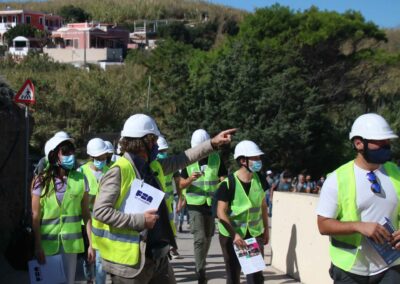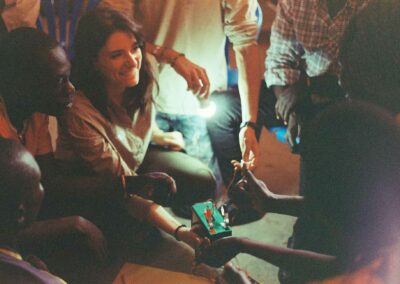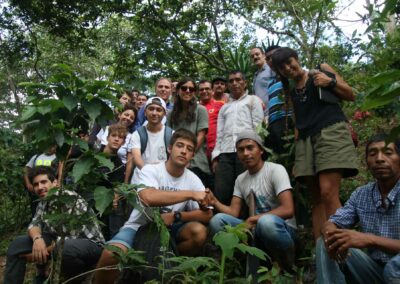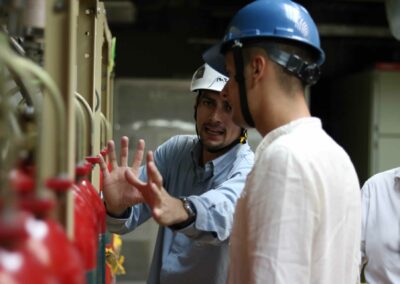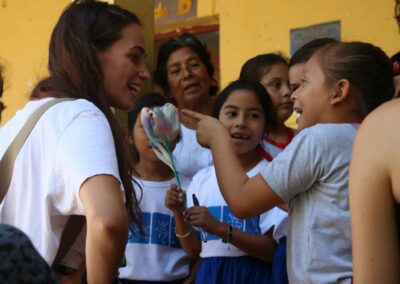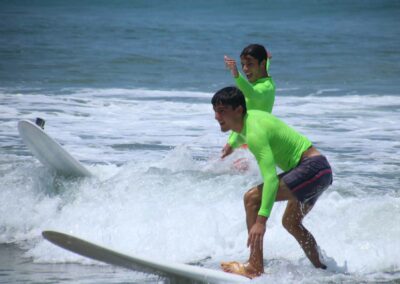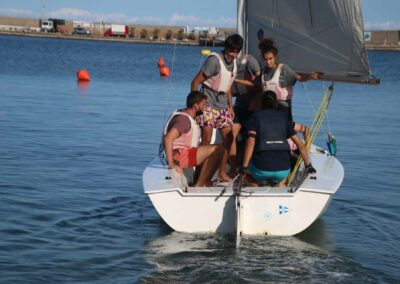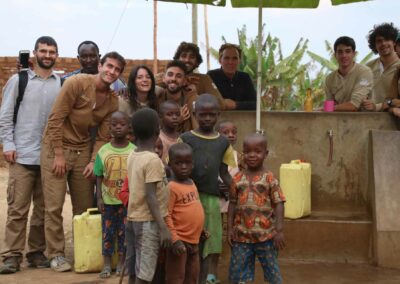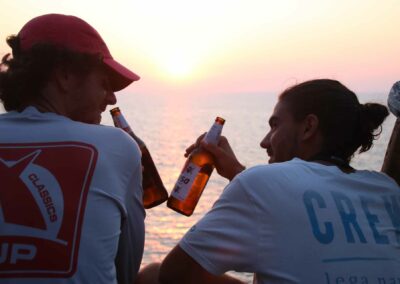
NEPAL
Dal 31 luglio al 14 agosto 2024
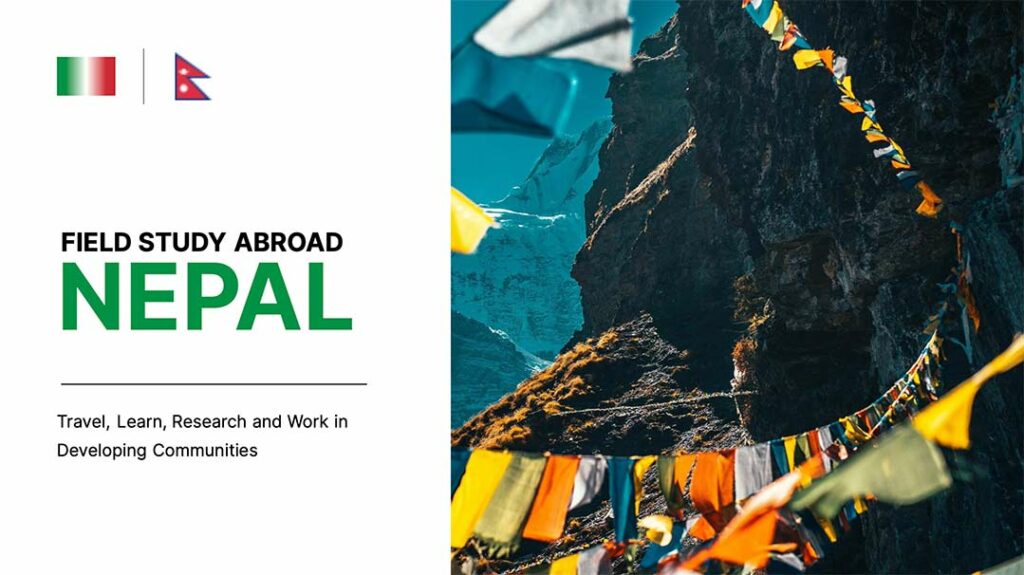
“Che cos’è il Field Study Abroad?”
Il Field Study Abroad è una esperienza personale e di gruppo, proposta dalla ONLUS Tecnica Solidarity, fondata nel 2007 e socio di Banca Etica, ed il CIRPS (Centro Interuniversitario si Ricerca per lo Sviluppo Sostenibile) fondato nel 1987, attraverso i propri progetti degli ultimi 10 anni.
Quali sono gli obiettivi del FSA?
Con il FSA si propone una esperienza di 30 giorni dedicati alle energie rinnovabili, e allo sviluppo di comunità rurali in East Africa (partenza fine Dicembre), in Centro America (partenza inizio Agosto) e Lazio.
EAST AFRICA
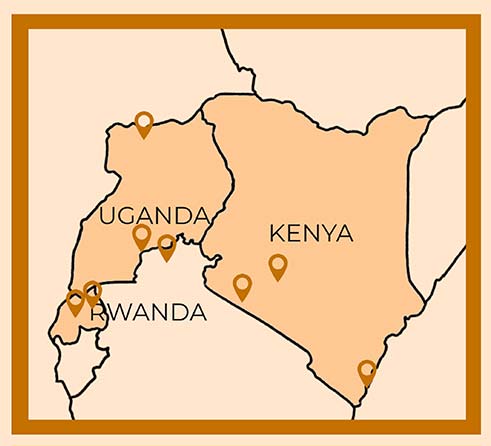
CENTRO AMERICA
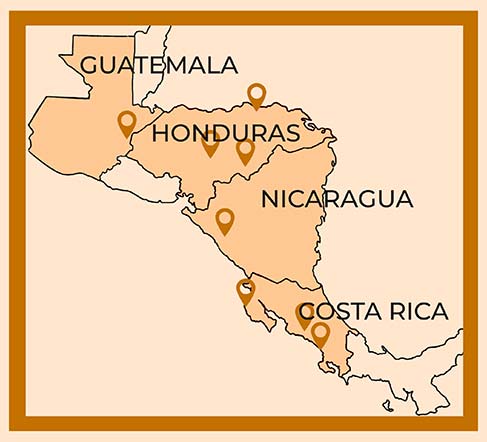
LAZIO

I gruppi di interessati nelle precedenti edizioni, sono stati caratterizzati da studenti e dottorandi di ogni Facoltà da tutta Italia, ma anche persone più adulte e di Paesi esteri, che hanno deciso di partecipare alle fasi di ideazione, nascita, sviluppo, e verifica/condivisione dell’impatto sociale di una decina di progetti basati sulle energie rinnovabili.
Ciascun progetto incontrato nel viaggio verrà visitato e supportato in una diversa fase di sviluppo, e ciascun progetto è situato in uno dei tre Paesi visitati siano Latini (Honduras, Guatemala, Costa Rica) oppure Africani (Kenya, Uganda, Ruanda).
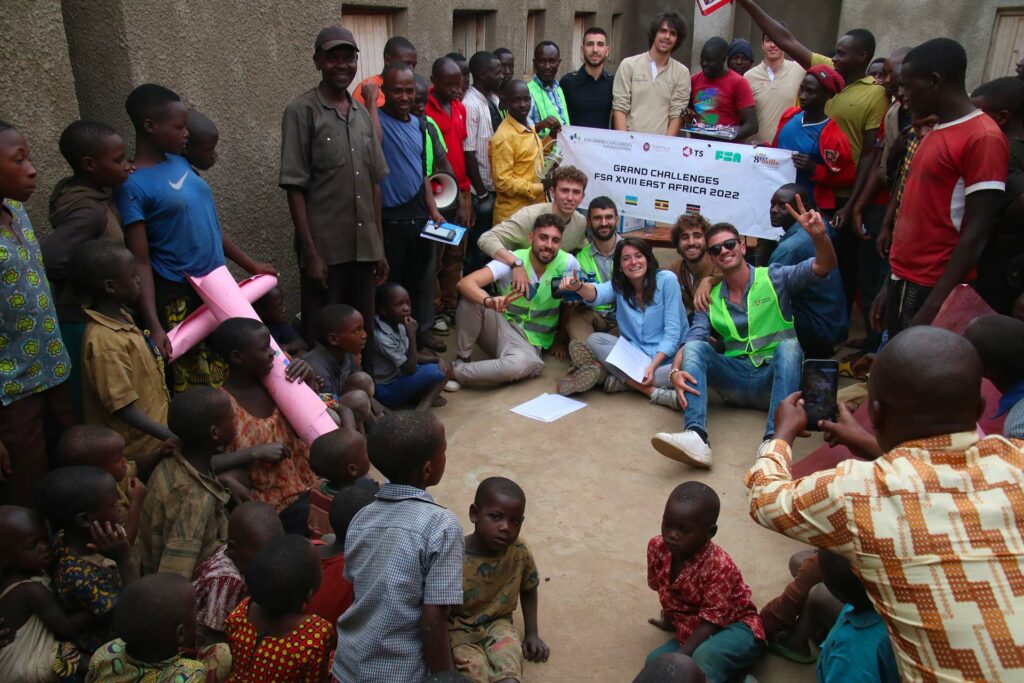
In cosa consiste il FSA?
In 30 giorni si ha una conoscenza reale dello sviluppo rurale e delle mini-grid ad energia rinnovabile, anche attraverso il contatto diretto con dirigenti e operatori delle Nazioni Unite, ONG locali e internazionali, Società impegnate nei lavori di sviluppo, e soprattutto di Persone e Comunità desiderose di lavorare per il proprio territorio, per la dignità e protezione della comunità e del suo ambiente naturale.
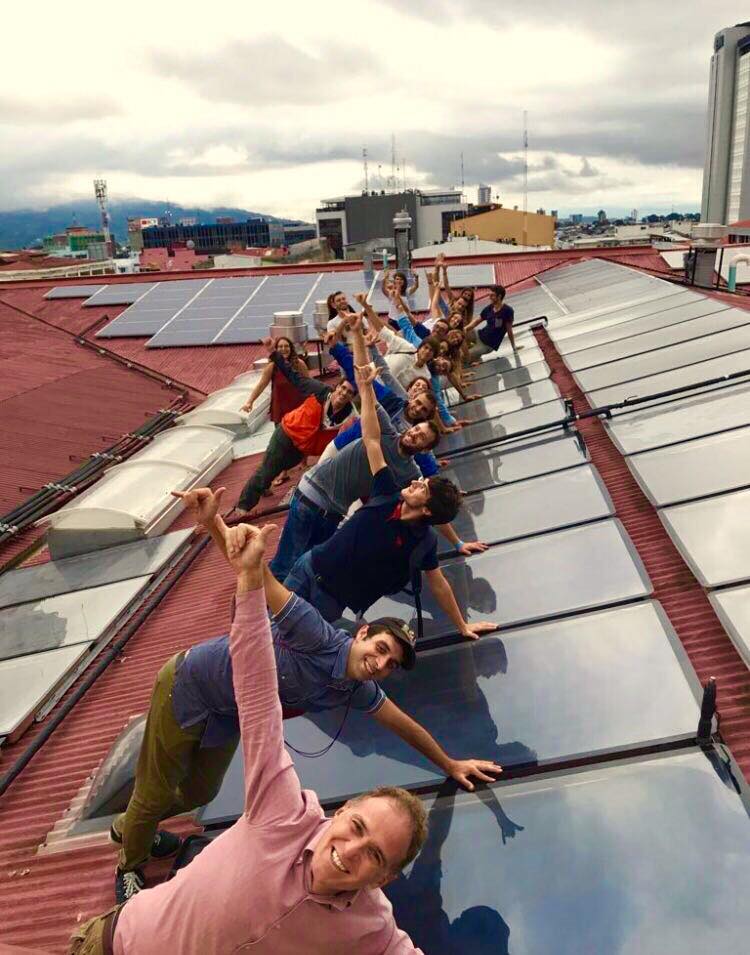

Il “Field Study Abroad” è sempre condiviso con uno staff di ricercatori della Sapienza, della Università di Pisa, della Columbia di NYC, e del MIT, e soprattutto delle Università locali, che ne condividono le finalità e che attraverso l’esperienza pluridecennale, aiutano i partenti ad entrare nei problemi e nelle soluzioni tecniche, economiche e sociali, scelte ed adottate.
Il “Field Study Abroad” è un percorso sociale, tecnologico ed ambientale, basato anzitutto sulla voglia di conoscere e sulla solidarietà che spinge ad impegnarsi in una avventura, in piena sicurezza e grande coinvolgimento, i risultati sono sempre stati sia nuove competenze per i partecipanti, sia nuovi passi avanti per i progetti, e soprattutto la condivisione di realtà sociali ed ambientali preziose e nascoste…
Qual è una giornata tipo?
- 6.45 Allarm Clock!
- 7.00 Sport Wake Up Activities
- 7.30 Breakfast
- 8.00 Briefing on Specific Activities of the Day
- 8.30 Meeting with local, Experts/Representatives (Community, University, United Nations, Industry)
- 10.30 Activity (Field Work, Focus Group, Assesment, Construction)
- 13.00 Lunch
- 14.00 Activity (Field Work, Focus Group, Assesment, Construction)
- 16.00 Debriefing of the Day
- 17.00 “Your Technical, Management, Social, Environemntal Tool Kit”
- 18.00 Personal work of reporting
- 19.00 Personal Time
- 20.00 Dinner
- 22.00 Social and Personal activities
- 22.30 Relaxing Activities
- 23.00 Sleeping time
Testimonianze
Cosa ne pensa chi ha fatto il FSA?
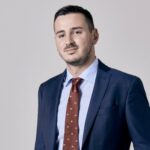
Adriano Belocchi
Good morning Professor! I wanted to tell you that a few days ago I was given the photo book, so I wanted to thank you for this beautiful gift that will help us keep alive the memories of the great experience we have experienced, which even today I never stop telling! Needless to say that the experience made at Enel thanks to you always intrigues me in the talks I have had and I think it is thanks to this that I was able to start this new job 3 months ago!
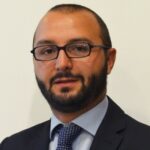
Riccardo Del Citto
I wanted to write to you after the doctorate to thank you for these years together, they were extremely intense and pleasant, I grew a lot and I had the opportunity to get to know this world more and more. Thanks to this I was able to find a beautiful job and do what I had always dreamed of since high school, putting the technique at the service of those who are worse off. All this thanks to you who brought me to Honduras, finally making me approach a world that fascinated me but in which I had never been able to enter, and that you then accompanied me to the doctorate where we were able together to find a way that we liked. and in which we could excel …
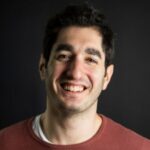
Matteo Ghirardi
…. together we came out stronger than before, like the characters in an adventure book … after such a thing, we are not just a group of engineers, we become a group from time to time of brothers and sisters you are sure you can trust. When you experience such intense emotions together, there are no more stupid social barriers, useless chatter of circumstance. One enters the depths of each other’s soul and clings tight to a timid night fire under the starry vault.
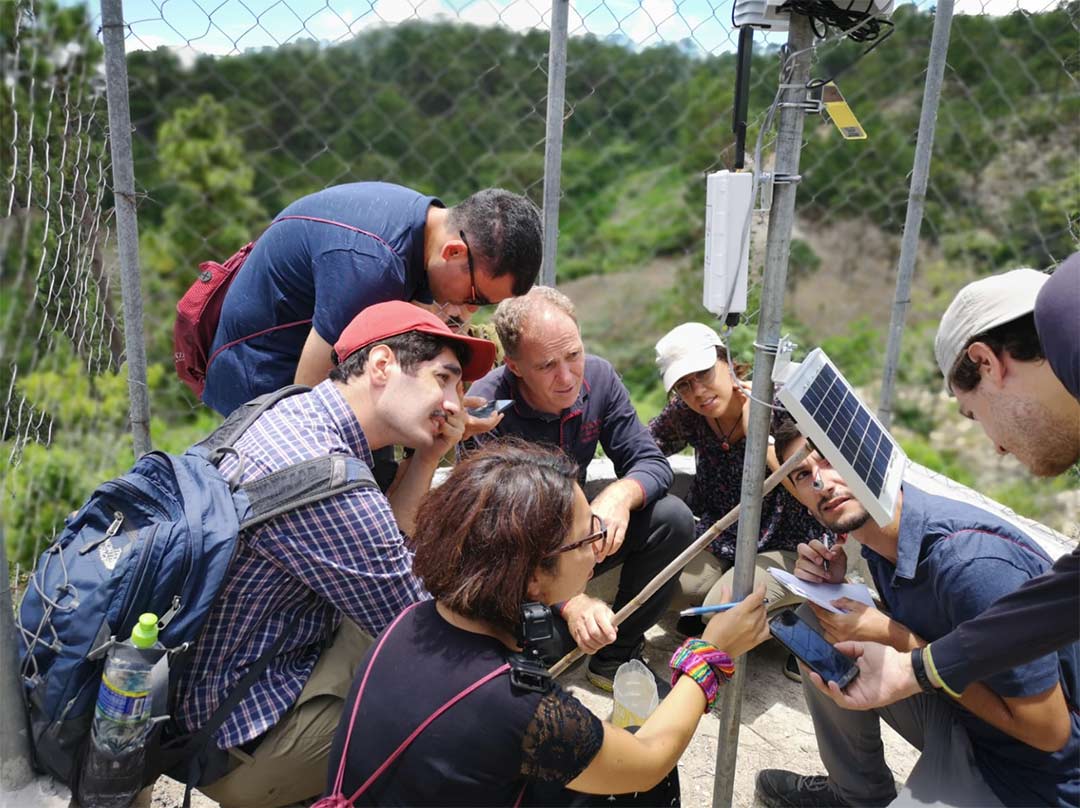
10 motivi per cui dovresti partecipare al FSA
- TRUST IN YOURSELF: Living in very different countries means developing great self-confidence, in the ability to tackle the new professionally and effectively. Overcoming the Challenges makes us safer!
- AWARENESS OF UNIVERSITY, WORK, SOLIDARITY AND ENVIRONMENTAL ENVIRONMENTS: Moving in new contexts with one’s own wealth of knowledge develops both the sense of being able to do, and a desire for more structured research, and the need to innovate, with times and ways appropriate to the surrounding environment.
- SENSE OF ORIENTATION IN STUDIO AND WORK: Doing research in scarcity of data or vice versa in the presence of many conflicting information develops the ability to distinguish the value of each information, and its utility for the project. Different perspectives received in onewill give orientation on research issues oneself passions and market opportunities.
- KNOWLEDGE OF THE SOCIAL AND POLITICAL ENVIRONMENT OF OURS AND OTHER COUNTRIES: Passing from one country to another of the same Region makes it possible to compare different ways of addressing historical phases and technological and social problems.
- ORDER AND CREATIVITY: Traveling in new places with little comfort means keeping the personal and professional equipment, research and teaching, in order, every day, think “out of the box “quickly find a solution. Challenges make us more creative!
- TENACITY: In-depth work, meetings in different languages, new food, long journeys, desire to achieve results that remain over the years, meetings with people who have a Life and a Continent to tell.
- SENSE OF RESPONSIBILITY: The role of the international professional in the small local realities must be played in full responsibility of being able to do, and at the same time on tiptoe, in a nutshell respecting themselves as collaborators and others as true experts of their own situation, community environment.
- VISION and PROJECTUALITY: Developing the spirit of adaptation while keeping the highest goals fixed, knowing how to slightly modify them, according to the social and natural economic environment that you encounter …
- COURAGE: Acquire the awareness of being able to do it, both in adverse weather conditions, and in socio-economic conditions that seem irreversible. Knowing that you have the ability to know how to do, only after … just when you have just done it
- PATIENCE: Knowing that you are not masters of time, that there may be expectations due to the internal and external conditions of the group and the host context, knowing that time is precious, and can always be used, sometimes even in a different way as expected … Challenges keep us humble! They remind us to remain human …
CONTATTACI
Per iscriverti o per qualsiasi richiesta di informazioni non esitare a contattarci!
Diana Bulf – Vice Presidente Tecnologie Solidali onlus
Tel: +39 320 7123601
Email: segreteria.tecnologie.solidali@gmail.com
Prof. Stefano Grego – Presidente Tecnologie Solidali onlus
Email: president@technicalsolidarity.org

